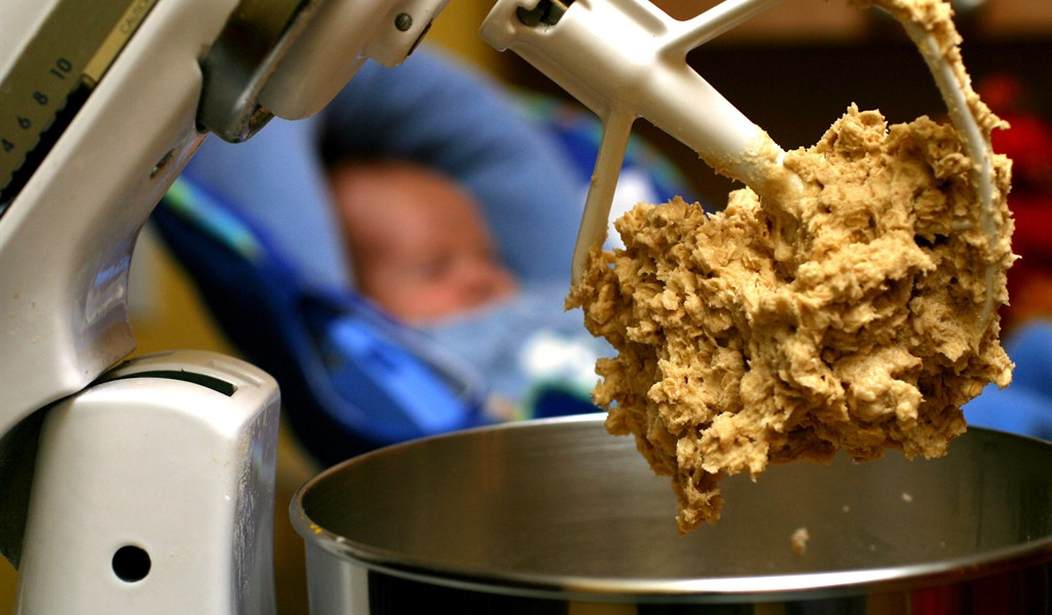Baking and teaching have been my passions for as long as I can remember. I don’t claim to be an expert in either, but I have tried to be very intentional about learning as much as possible, so I am constantly improving in both. Over the years, I’ve discovered that many of the same elements that lead to success in baking also apply to teaching. One key takeaway is that the ingredients you start with directly affect the result.
My interest in baking began at a very young age when I watched my mother whip up some delectable creations in the kitchen. I didn’t know what ingredients she was adding or understand the chemistry behind them; all I knew was that the batter on the beaters tasted delicious, and those ingredients always resulted in mouthwatering masterpieces. Later, when I tried my hand at baking, I realized there was a science behind it, and if I strayed too far from the instructions, took shortcuts, or attempted to be too creative with the ingredients, things didn’t work out so well.
My interest in teaching truly began in first grade. I idolized my teacher, Mrs. Schmidt, and wanted to emulate her. At six years old, I hardly knew or understood all that went into creating a calm, well-run classroom. All I knew was that she loved her job, I learned a lot, and my peers and I loved being in her class. Later, when I tried my hand at teaching, I realized there was a science behind it as well. Like my baking experience, I discovered that things fell flat if I strayed too far from the curriculum, took shortcuts, or placed creativity over content.
When I first started baking, I was enamored with the latest and greatest innovations that promised to help me be more efficient and get better results. I assumed my mother’s techniques and tools were outdated and old-fashioned. I read articles in sophisticated magazines and watched elaborate baking shows on cable television. My arrogance and ignorance led me to believe that I knew better. What I failed to realize was the value of experience. Decades later, I use the same simple tools my mother used when creating her masterpieces.
Recommended
As a new, enthusiastic teacher fresh out of college, I admit to being drawn to the innovative tools and techniques touted by modern educators. They promised to make teaching and learning more efficient and effective, so I assumed they were better than the “old-fashioned” way of teaching. Students sitting in rows of desks listening to the teacher lecture were outdated and oppressive. The experts said a more effective classroom setup was putting students in groups or at tables to allow them to “teach each other.” No one told me that the things they taught each other would bring chaos to my classroom.
According to sophisticated, highly credentialed academics, textbooks were considered boring and outdated. Instead, I was encouraged to choose from an endless menu of “creative” lesson plan ideas online. The problem was that I lost valuable time searching, and the lesson plans often lacked solid content and rigor and contained inaccuracy. Decades later, I seek out content-rich, rigorous curricula with clear objectives so I can use my time helping students instead of searching the internet.
The biggest myth I can’t believe I fell for as an inexperienced teacher was that students should direct their learning or “discover” what they should learn. My journey from novice to competent baker should have told me it was the least inefficient and most frustrating way to learn something. In my kitchen, with plenty of time and resources and a forgiving “customer base,” inquiry-based learning wasn’t such a big deal. In a classroom setting with twenty-five students whom I only get to teach five days a week for nine months, time is crucial, and there isn’t a minute to waste. Direct instruction, repetition, and regular retrieval opportunities may not be the most innovative, but they are the most effective and efficient ways to teach students.
Over the years, I have become quite adept in the kitchen and, at one time, was given the title of “cake lady” because I was always willing to provide one for celebrations, times of grieving, and any other type of occasion. While I have honed my skills considerably, my mother is still a much better baker than I am. Nothing compares to her years of experience, that I can only strive to attain. She would tell you that she still has much to learn, but her results, using the proper ingredients, are consistently superb.
That is also an essential reality for new teachers to understand. Even with all the right ingredients, clear instructions, and proper tools, lessons may fall short of expectations. When that happens, often, the only missing element is experience. It can’t be taught; it has to be earned. Much like a great baker, a great teacher will also be a diligent student who is always willing to learn from others and their mistakes. Starting with the proper ingredients will lead to fewer disappointments, more effective teaching, and thriving students.
Claudine "Beanie" Geoghegan is the co-founder of Freedom in Education and a visiting fellow with the Education Freedom Center at Independent Women’s Forum (iwf.org/EFC). She is a former teacher and resident of Louisville.

























Join the conversation as a VIP Member